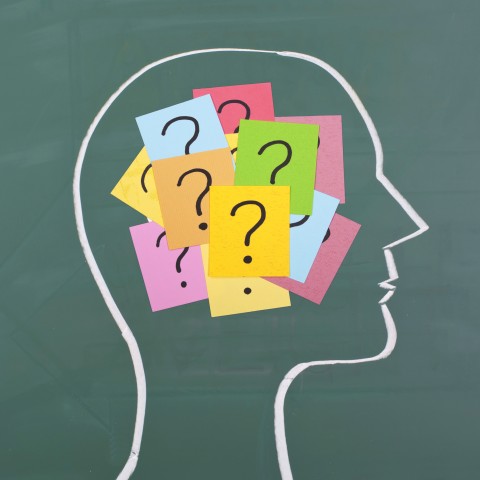
Learning a foreign language comes with several added benefits, from new business opportunities to a healthier mind.
But why learn Dutch, specifically? After all, there are plenty of other languages to choose from—some of which are in higher demand and more widely spoken.
There are many reasons why you should learn Dutch, and DutchPod101 is here to break it all down for you and show you that Dutch isn’t such a hard language to learn. With a little help and guidance, you’ll be able to tackle this fun challenge and advance toward your goals!
In this article, we’ll go over the 10 main reasons why you should start learning Dutch. We’ve included reasons related to: leisure (travel, friendship, love, culture); business (quality studies, work opportunities); and personal development (benefits of learning another language).
Let’s dive in.

So why should you learn Dutch?
 Table of Contents
Table of Contents
- Reasons Related to the Country and the Language
- Reasons Related to the Benefits of Learning a Language
- Reasons Related to Personal and Professional Aspects
- How DutchPod101 Can Help You Learn Dutch
1. Reasons Related to the Country and the Language
Some of the best reasons to learn Dutch have to do with the properties of the language itself, as well as the countries in which it’s spoken. Let’s take a closer look.
Reason 1: Learning Dutch is relatively easy.
So, why study Dutch? Because it’s quite easy, especially for English speakers. Here’s what we mean:
- Dutch is very similar to English and German.
If you speak English or German, mastering Dutch will not be too difficult for you. Dutch is very similar to these languages, making it one of the easiest languages for native English or German speakers to learn. Speaking one of these languages—even if not natively—will give you a headstart in your Dutch learning!
- You already know some Dutch words.
Nearly one-third of the Dutch language is borrowed, namely from English, French, German, and Hebrew. As such, knowing one or more of these languages will make it easier for you to pick up Dutch.
- Dutch people will appreciate your efforts.
The Dutch are used to foreigners speaking in English with them. So when foreigners (try to) speak Dutch, native speakers are pleasantly surprised and are happy to help. They’ll appreciate your effort, try to speak extra-slow, and help you whenever you get stuck.
You might need to make it clear first that you really prefer to speak Dutch, as they’ll switch to English out of habit if you don’t. But once that’s cleared up, their willingness to help will turn out to be one of the best things about learning the language.
- Your pronunciation and grammar don’t have to be perfect.
The Dutch aren’t too snobby or arrogant regarding their language. Mistakes are okay, and even Dutch natives can be quite sloppy with their own language. Grammar rules aren’t always taken into account, and even the pronunciation isn’t always perfect.
The Netherlands may be a small country, but it has a lot of dialects and accents from region to region. That’s why there’s no such thing as perfect Dutch pronunciation. Take, for example, the hard g sound in the north and the soft g sound in the south. Of course, you should try to learn Dutch the best you can, but it’s simply okay to make mistakes.
If you’d like to learn more about why learning Dutch is easier than you might think, make sure to visit our full article Is Dutch Hard to Learn?
Reason 2: Dutch is spoken in more places than you might think.
Dutch is the official language of the Netherlands and Suriname, and it’s one of the official languages in Belgium, Aruba, Bonaire, and Curaçao. It’s spoken in most of the former Dutch colonies and in small emigrant communities all over the world. Dutch is also the parent language of Afrikaans, one of the 150 official languages of South Africa. (Before Afrikaans was officially recognized by linguists, Dutch itself was one of the official languages here.)
So, why learn Dutch? Because there are about 23 million people registered as native Dutch speakers all over the world and another 5 million speak Dutch as a secondary language.
Reason 3: You’ll get to know the rich Dutch culture and history.
When you learn a language, even if you’re just focusing on practical topics such as grammar and vocabulary, you’ll get to know more about the culture and the history of its native speakers.
As your thoughts are shaped by the language you speak, learning the Dutch language will give you some insight regarding how the Dutch think. Learning a language is like opening a window into the Dutch culture, history, and way of life. And if this is too philosophical for you, there’s also a more practical reason why learning Dutch will help you learn the country’s culture and history: It’s the perfect way to be able to connect with the locals. If you can’t have a conversation with the Dutch, how can you get to know their country?
Yes, of course, many Dutchies speak English, but the culture and history of a country includes its language, sayings, humor, and even songs. So, while learning Dutch, you’ll be able to get to know all these different aspects of the Dutch culture.

How well do you know the Dutch history and culture?
- → Going to the Netherlands? Don’t leave without these Top 30 Travel Phrases You Should Know.
Reason 4: Dutch is a funny language.
The Dutch language has a very funny pronunciation with a lot of tricky sounds. It may not be the smoothest or sexiest language in the world, but it has some funny sounds no other languages seem to have.
Dutch has a lot of vowels, as it uses single vowels, double vowels, and diphthongs. A diphthong is a pair of vowels that, together, make a particular sound that no vowel on its own has. The Dutch alphabet has six vowels (a, e, i o, u, y) and nine diphthongs:
| Letter | (English) Pronunciation | Example |
| ai | Pronounced as [I] in “I am” in English | mais (“corn”) |
| au | Pronounced like [ow] in the English word “now” | auto (“car”) |
| ei | Pronounced as the [i] in the English word “find” | ei (“egg”) |
| eu | This sound doesn’t exist in English, but you may know it from the French word “beurre.” | leuk (“fun”) |
| ie | Pronounced like [ee] in the English word “bee” | mier (“ant”) |
| ij | Pronounced exactly the same as the Dutch ei diphthong | wijn (“wine”) |
| oe | Pronounced like [oo] in the English word “pool” | moe (“tired”) |
| ou | This diphthong has exactly the same sound as the Dutch au diphthong. | koud (“cold”) |
| ui | This sound doesn’t exist in English, but it’s a combination of the [a] sound in “man” followed by a long Dutch u. | muis (“mouse”) |
But that’s not all. The Dutch language even has triple vowels:
| Letter | (English) Pronunciation | Example |
| aai | This is a combination of the Dutch aa and ie. | draaien (“to turn”) |
| oei | This is a combination of the Dutch oe and ie. | koeien (“cows”) |
| ooi | This is a combination of the Dutch oo and ie. | nooit (“never”) |
| eeu | This combination will always be followed by the letter w and is a combination of ee and oe. | sneeuw (“snow”) |
Learning these tongue-twisters may be a challenge, but it will also be fun to master them.
Dutch also has a lot of funny words. They might be the most normal words for the Dutch, but when you translate them directly to English, you’ll notice how crazy these words are:
- Boterham literally translates to “butter ham,” but it actually means “sandwich” or “a slice of bread.”
- Handschoenen literally translates to “hand shoes,” but it actually means “gloves.”
- Toiletbril literally translates to “toilet glasses,” but it actually means “toilet seat.”
Getting to know these crazy and funny Dutch words will make learning the language even more fun.

Which of these words made you laugh the most?
- → These are just a few of the many funny Dutch words. Do you know any other ones?
2. Reasons Related to the Benefits of Learning a Language
Of course, learning any language can add value to your life. Here are just a few benefits you can expect to gain when you start learning Dutch.
Reason 5: Learning another language will open up your mind.
Most people don’t give their native language much thought. It all comes naturally, so why think much about it?
It’s learning another language that will make you start wondering about linguistics. Just like realizing how lovely home is when you’re away from it, you’ll realize how interesting your native language is when you’re learning another one. You’ll discover similarities and differences, and you might even develop a new appreciation for your own language.
So, learning another language will open up your mind to your own language and to the world around it. Especially if you’re a native English speaker (and you’re used to using your native language abroad), learning another language will be an enriching experience culturally, professionally, and personally.
Reason 6: Knowing Dutch will help you learn other European languages.
As we mentioned earlier, the Dutch language is quite similar to the English and German languages. But why is that?
Dutch is part of the Indo-European family of languages and belongs to the Germanic branch, as do English and German. Dutch has the same Germanic core as the German language, but integrates more Romance loans than the German language does (and fewer than English does). As is the case with German, the vocabulary of Dutch also has strong similarities with the continental Scandinavian languages, but differs quite a lot in text and speech.
So, knowing the Dutch language will help you learn quite a few other European languages, namely: English, German, Norwegian, Swedish, and Danish. These languages might be quite different (especially in pronunciation), but the similarities they share with the Dutch vocabulary and/or structure will give you a headstart when learning one of these other languages.
Reason 7: It will give your brain a boost.
Learning Dutch not only opens up your mind to your own language and helps you learn certain European languages, but it can also improve the overall health and functionality of your brain.
Learning a second language has many brain-boosting benefits: a better memory, greater multitasking skills, an improved ability to conceptualize, and faster, more decisive decision-making. Learning a new language can even help prevent dementia.
This boost can also help with learning other languages. If you already speak a foreign language, it will be easier to learn yet another language, as your brain is accustomed to the challenges of learning a foreign language. Therefore, bilinguals often find it easier to learn a third language.

Memorizing words gives your brain a boost.
3. Reasons Related to Personal and Professional Aspects
If you’re still wondering why to learn Dutch, have you yet considered the potential gains you could experience in your personal and professional life? Here are three more ways that learning Dutch can enhance your life:
Reason 8: You’ll be able to enjoy studying in the Netherlands.
Speaking Dutch opens up lots of opportunities for education in the Netherlands. With some great universities as well as hogescholen (literally meaning “high schools,” but these are universities of applied sciences), the Netherlands has many study options to choose from.
In the Netherlands, there’s WO (wetenschappelijk onderwijs, meaning “scientific education”) taught at universities and HBO (hoger beroepsonderwijs, meaning “higher professional education”) taught at hogescholen.
The great thing about the Dutch universities is that they offer high-quality education at relatively low costs, especially compared to the price of big universities in the U.S. and U.K.
Many of these schools have an international or multicultural environment with a wide range of courses in English. So you don’t have to manage Dutch at a high level to study in the country, though knowing the language will give you a richer study experience.
So why study Dutch? Because of the great study opportunities, of course! These are just two great facts about studying in the Netherlands, but there are many more reasons why you should study in the Netherlands.
- → Do you want to study in the Netherlands? Then you can start practicing with our vocabulary list of Words and Phrases for Living on a School Campus.
Reason 9: Learn Dutch to enjoy new business opportunities or career options.
The Netherlands has one of the richest and most stable economies in the European Union. There are many international companies located in the country and the Dutch government is very helpful to small businesses, having special measures to stimulate their development. So, there are many business opportunities and career options to enjoy in this small country.
But these many opportunities are not the only reasons to work in the Netherlands. Other great reasons are the high working standards (with a great work/life balance), a good healthcare system, and an excellent standard of living.
As you can see, working in the Netherlands offers some great opportunities. Although not all companies or positions require a knowledge of the Dutch language, knowing Dutch will still help you find work here and have a better overall experience.
Even if you don’t want to move to the Netherlands, knowing another language will be a positive selling point when you’re looking for a job in your own country. Learning Dutch will provide opportunities to work for companies that either have ties with the Netherlands or are in contact with Dutch groups.
- → The secret to doing business in the Netherlands? Impress them with your Dutch, thanks to our list of Phrases for Doing Business Successfully.
→ Do you have a job in the Netherlands already? Then our vocabulary list Talking About the Workplace may help you get used to the place!
Reason 10: Improve your relationships and communication with Dutch loved ones and their family.
Last but not least, a great reason to bother learning Dutch is to impress or win over a special someone in the Netherlands.
If you have a Dutch boyfriend or girlfriend, wouldn’t it be nice to be able to talk with him or her in their native language? It would definitely be a great way to impress them, and you’ll also get to know them better as you’ll start to understand their culture and way of thinking. You can start to declare your love to them with a beautiful ik hou van jou (“I love you”). Or give them a Dutch koosnaampje (“pet name”).
Learning the language would also mean that you could start communicating better with your lover’s family and friends. This way, the next time you go to a Dutch birthday party, you could talk with your Dutch in-laws about koetjes en kalfjes (translates literally to “talk about little cows and calves,” which refers to making small talk). This time, you’ll be the one participating in the conversations of your Dutch family, instead of them having to make the effort to speak English with you.

Speak Dutch with your Dutch lover.
Even if you don’t have a Dutch lover, wouldn’t it be great to be able to speak in Dutch with your Dutch friends?
- → Do you want to get romantic with your Dutch lover? Then you might find value in our vocabulary list of Dutch Words Related to Valentine’s Day or these Dutch Quotes about Love!
4. How DutchPod101 Can Help You Learn Dutch
In this guide, you’ve learned the main reasons why you should learn Dutch. We’ve shown you many of the benefits of learning the Dutch language, from its practical applications in the business world to the sheer fact that it’s pretty funny at times. Learning any language, in fact, can improve the quality of your life: broader opportunities for study, enhanced brain function, and a more open mind are just a few examples.
Are you still thinking: Why should I learn Dutch? Or do you already know your answer? If so, do you feel ready to start learning Dutch or do you need some more guidance?
Make sure to explore DutchPod101.com, as we have plenty of free resources to help you practice your grammar and many useful vocabulary lists with audio recordings to learn new words.
Remember that you can also use our Premium PLUS MyTeacher service for personal one-on-one coaching. This way, you can practice your Dutch speaking skills with your own private teacher through interactive exercises and personalized feedback.
Happy learning!










